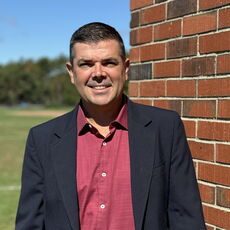
Processing Your Payment
Please do not leave this page until complete. This can take a few moments.
- News
-
Editions
-
- Lists
-
Viewpoints
-
Our Events
-
Event Info
- Women's Leadership Forum 2025
- On the Road with Mainebiz in Bethel
- Health Care Forum 2025
- On The Road with Mainebiz in Greenville
- On The Road with Mainebiz in Waterville
- Small Business Forum 2025
- Outstanding Women in Business Reception 2025
- On The Road with Mainebiz in Bath
- 60 Ideas in 60 Minutes Portland 2025
- 40 Under 40 Awards Reception 2025
- On The Road with Mainebiz in Lewiston / Auburn
- 60 Ideas in 60 Minutes Bangor 2025
Award Honorees
- 2025 Business Leaders of the Year
- 2024 Women to Watch Honorees
- 2024 Business Leaders of the Year
- 2023 NextUp: 40 Under 40 Honorees
- 2023 Women to Watch Honorees
- 2023 Business Leaders of the Year
- 2022 NextUp: 40 Under 40 Honorees
- 2022 Women to Watch Honorees
- 2022 Business Leaders of the Year
-
-
Calendar
-
Biz Marketplace
- News
- Editions
- Lists
- Viewpoints
-
Our Events
Event Info
- View all Events
- Women's Leadership Forum 2025
- On the Road with Mainebiz in Bethel
- Health Care Forum 2025
- On The Road with Mainebiz in Greenville
- On The Road with Mainebiz in Waterville
- + More
Award Honorees
- 2025 Business Leaders of the Year
- 2024 Women to Watch Honorees
- 2024 Business Leaders of the Year
- 2023 NextUp: 40 Under 40 Honorees
- 2023 Women to Watch Honorees
- 2023 Business Leaders of the Year
- + More
- 2022 NextUp: 40 Under 40 Honorees
- 2022 Women to Watch Honorees
- 2022 Business Leaders of the Year
- Nomination Forms
- Calendar
- Biz Marketplace
Maine land bank's first test will be redeveloping East Millinocket site
The Maine Redevelopment Land Bank Authority — created two years ago by the state Legislature — will hold an event Friday in conjunction with its first partner, the Penobscot County town of East Millinocket.
The event, from 10 a.m. to 1 p.m., will include tours showing off the work at the site of the former Great Northern Paper Co. mill.
“The East Millinocket Industrial Board has been working for five years to kick-start the reuse of this crucial property,” said Michael Michaud, chair of the East Millinocket Board of Selectman. “Although we have had some significant success, we are very excited to be Maine Redevelopment’s first community partner and look forward to accelerating the revitalization of the site.”
Maine’s first statewide land bank was established in 2022 as a dedicated independent entity to assist redevelopment activities across the state, when the Maine Legislature passed and Gov. Janet Mills signed LD 1694, sponsored by state Rep. Melanie Sachs, D-Freeport.
Mills appointed nine commissioners with skills defined by the legislation that are considered key to the authority's mission. The panel is also joined by five ex-officio members from state agencies whose responsibilities intertwine with and enhance its capabilities.
The goal is to help communities bring abandoned, environmentally compromised or functionally obsolete properties into productive use by using federal and technical resources.
The properties, due to title, tax or lien complications, environmental issues, functional obsolescence or other factors, may be prohibitive to private investment or municipal redevelopment, according to a news release.
“Maine Redevelopment will build partnerships to take on properties with complex challenges,” said Robert Bryant, the authority's District Two commissioner. “Our focus is to get those properties back to work. What that work is will be driven not by us, but by the Maine communities we serve.”
The model allows municipalities to work with the MRLBA to determine the best use for distressed properties, often resulting in housing development or the creation of parks; and provides technical assistance to communities as they explore their options.
“This legislation was passed with significant input and strong bipartisan support,” said Sachs, who authored the Maine Redevelopment Authority Act. “Maine Redevelopment will be an incredibly flexible resource for municipalities to return properties to productive use.”
The authority was created as a corporate entity separate from the state government, with its own decision-making process. However, the state has granted it tools to achieve its goals, allowing MRLBA to acquire and sell real estate, utilize eminent domain when needed, acquire grant funds, issue bonds for the cleanup of sites and utilize its dedicated funding source financed by a surcharge on tipping fees.
Statewide problem
MRLBA responds to a statewide problem and is designed to be flexible as both a land bank and a redevelopment organization, Tuck O’Brien, the authority’s executive director, told Mainebiz.

“We have tools at our disposal that are designed to fill gaps and get properties back to work in their communities,” he said. That could take different forms.”
For example, the authority might work with a community or a developer to fill a gap related to a title or contamination issue. Or it could take title to hold onto the property until conditions change.
Listening tour
The Maine Redevelopment Land Bank Authority's board of commissioners — which includes organizations such as the Developers Collaborative of Portland and the Genesis Fund of Brunswick — brought O’Brien on earlier this year as its first executive director and, to date, only employee.
After he tackled a slew of administrative tasks, including a website that’s about to launch, O’Brien embarked over the past summer on a listening tour across Maine.
“It was listen first and talk second,” he said.
In a July outreach letter, O’Brien invited community and economic development leaders to connect so that he and his board could learn about how they might be of assistance to their communities or organizations.
“Our mission is to promote vibrant, prosperous, and sustainable communities by facilitating redevelopment of distressed property in partnership with local communities, public and private organizations,” he wrote. “We will develop innovative new sources of revenue and utilize best practices to catalyze the redevelopment of properties where the private market and current public resources cannot.”
East Millinocket was one of the first communities on the tour.
“We realized that they had a lot of great success but there were so many moving pieces, in the short- and long-term, that they would be a good partnership for us to start with,” he said.
Mill redevelopment
The town of East Millinocket owns the long-defunct Great Northern Paper Co. mill site and its redevelopment is being managed by a volunteer organization called the East Millinocket Industrial Board.
The town acquired the 215-acre property in 2020 and began plans for redeveloping and marketing the site, at 50 Main St. along the West Branch of the Penobscot River.
At the time, the town hired a New York company to demolish the mill’s steam plant and biomass facility and said it planned to seek funding to help redevelop the site.
The land bank's role and expenditures for the mill’s redevelopment is still being worked out, said O’Brien.
“A lot of what we’ll do is facilitate and be a conduit and also a clearinghouse for communities and developers,” he said. “Our tag line is ‘preparing for possibility.’”
Hit the ground running
Other potential projects under review include a former tannery in Hartland and properties in Van Buren, Fort Fairfield, Wiscasset and Kittery.
“There’s a lot of vacant and tax-acquired land out there, and towns are struggling to figure out how to repurpose them,” he said.
Early estimates show there could be 400 to 600 such properties across Maine, he said. As a statewide entity, the plan is for MRLBA to build a unified database of such properties.
“Right now, we’re prepared to hit the ground running,” he said. “This land bank is actually happening. We have the money, staff and a group of commissioners that are experienced and they’re getting boots on the ground.”









0 Comments